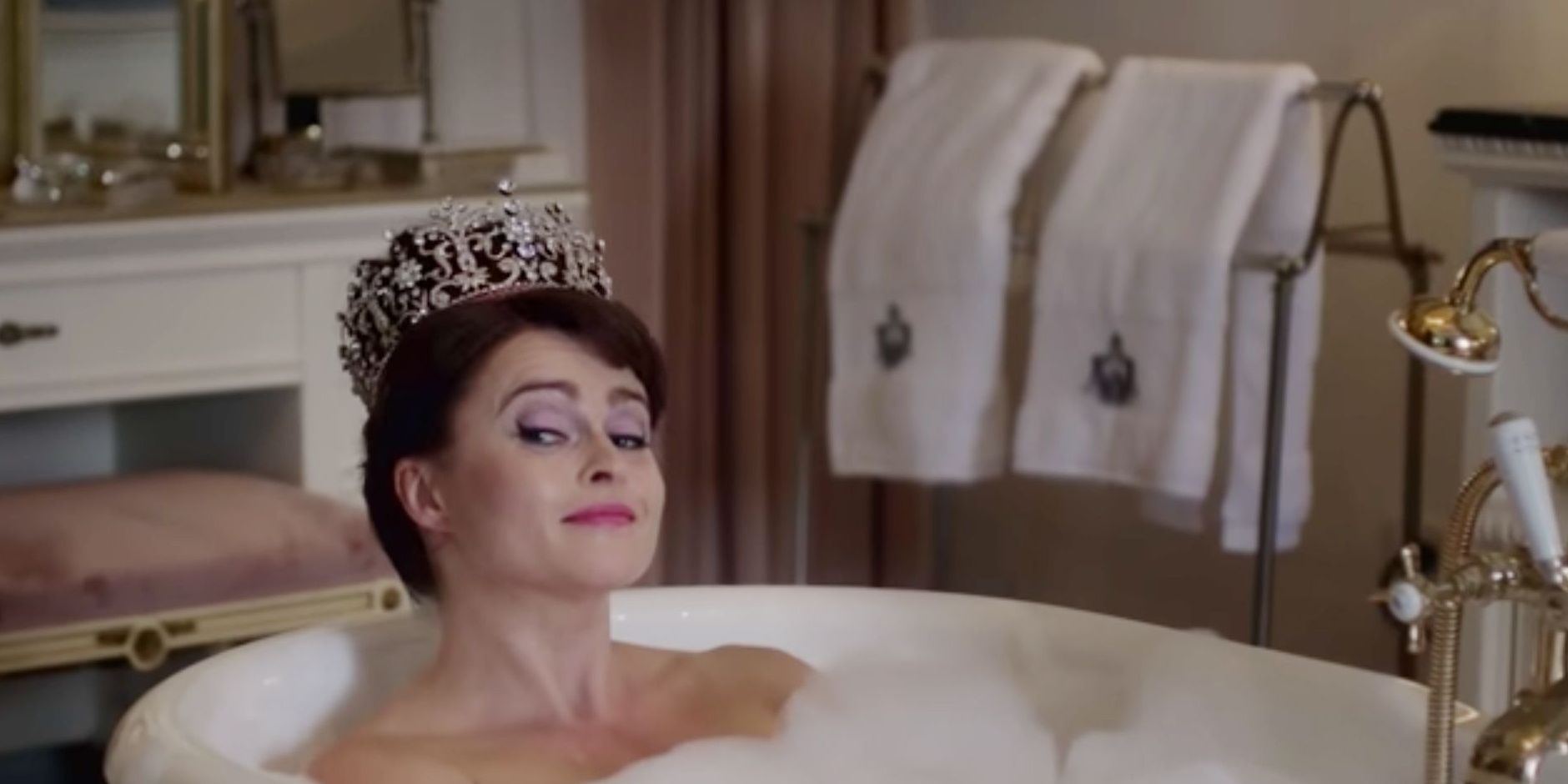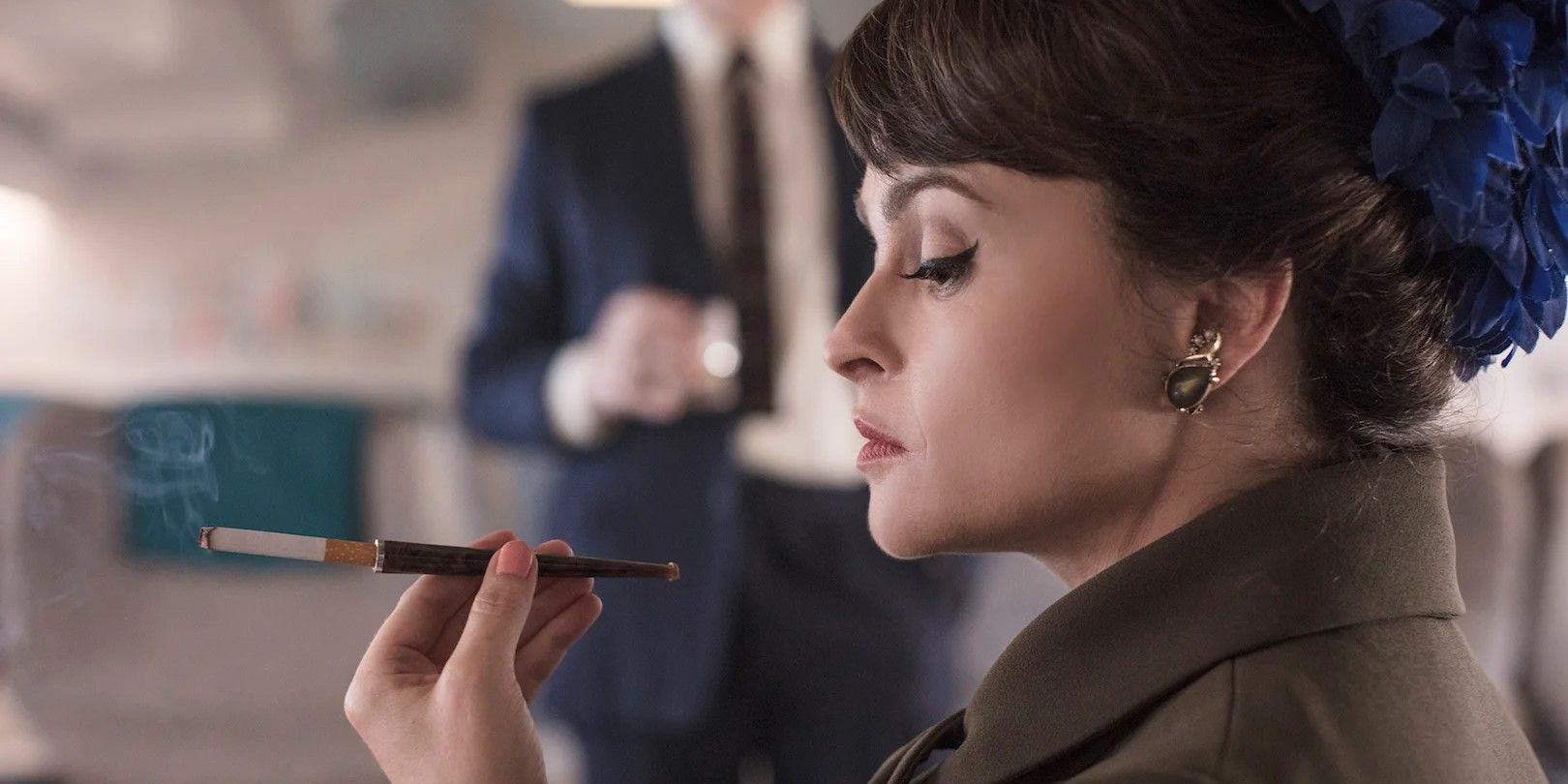Princess Margaret actress Helena Bonham Carter thinks The Crown has an obligation to label itself as fiction. The show has come under fire this season for its blurring of fact and fiction. As it moves into a more modern era with more sensationalistic storylines, audience reaction has become more volatile. Both Prince Charles and Camilla, the Duchess of Cornwall, have turned off their social media comments feature because of the fervent reaction to their portrayals in the most recent season.
Much of the fan ire directed towards Charles and Camilla comes from one of the season's main storylines. The main focus of season 4 is Princess Diana and Prince Charles' early relationship. The relationship was contentious, to say the least, and the show emphasizes that. Princess Diana's brother refused to cooperate with production for fear of what they'd do with her story. While the season has received critical acclaim, even the British government has stepped up and said The Crown should have a disclaimer before its episodes.
It seems as if the Princess Margaret actress agrees with the British government's sentiment. In a new interview with The Crown: The Official Podcast (via The Wrap), Carter says that the show has a moral imperative to label itself as a drama. Similar calls have come from the British government and pro-monarchy citizens who feel that the royals are getting a bad rap because of the show. The show has been known to shift things around for dramatic effect, but until now that has largely gone unnoticed.
"It is dramatized. I do feel very strongly, because I think we have a moral responsibility to say, ‘Hang on guys, this is not– it’s not a drama-doc, we’re making a drama. And they are two different entities.'"
The show has never posited itself as a 100% true account of the history of Queen Elizabeth's reign, but it also neglects to make clear what is fact and what is fiction in each season. Some events are shifted around and timelines can be condensed for dramatic effect. While this hasn't been a major issue for earlier seasons, as the show moves into the modern era, it has increasingly become a concern. Viewers remember the events much more clearly than they do of the earlier seasons, making some of the more contentious storylines a flashpoint of potential controversy.
While this usually works for the show, it can also hurt it. This season also focused on Margaret Thatcher's 11 years as Prime Minister of the United Kingdom and one of the episodes saw her enter the Falklands War while police searched for her missing son. In reality, the two events happened months apart, but the show implies that Thatcher entered the war because of her heightened emotional state, falling into the misogynistic trope of women being irresponsible and emotional leaders. As The Crown moves closer and closer to the 21st century (season 4 ends in 1990), viewers may see a disclaimer pop up ahead of episodes, especially if heavyweight stars like Carter continue to speak up about it.
Source: The Crown: The Official Podcast (via The Wrap)


